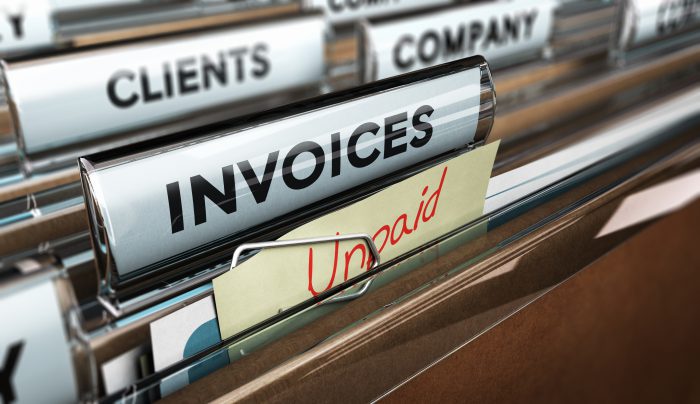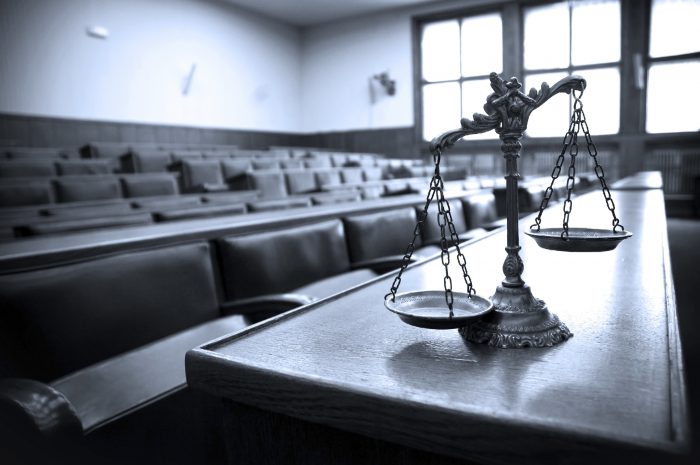What can we do if we receive our membership subs late?
The National Golf Clubs Advisory Association (NGCAA) details what a golf club can do about the late payment of membership fees.

Membership fees are a vital source of cash flow for all golf clubs. It should provide the ability to monitor and forecast the amount of funds which will be paid on a monthly or yearly basis, but when membership fees are paid late or not at all, this considerably restricts a club’s ability to meet overheads and other obligations. So what can be done?
There are several indicators that should set alarm bells ringing. These include:
- They are difficult to contact; your letters, emails and phone calls go unanswered;
- They are reluctant to negotiate payment schedules;
iii. They break their promises to make payments;
- They start to get excuses in early, for example by complaining about services or standards.
By identifying potential problem members early, you will save time and money spent chasing further down the line. You should have an internal process which deals with late payments as soon as they arise. When you find it’s too late and bad debts are starting to escalate and causing huge inconvenience, it might be time to call in the services of a solicitor.
Contract
You can negotiate or set out your own terms to ensure there is a substantial remedy to the club where members pay late. There are certain provisions you should consider incorporating into your constitution or membership agreement regarding late or non-payment. These should include:
- How many days after a payment falling due will it be considered a ‘late payment’?
- Will there be a fixed admin or late payment fee?
iii. Will this be charged once or monthly?
- Will this increase after the debt has remained unpaid for a certain period (six months / a year)?
- Will you charge interest on the late payment?
- What rate of interest will you charge?
vii. Do you reserve the right to recover your legal costs where legal action is taken to recover the monies owed?
Where the terms above are written into the constitution or membership agreement, sometimes signed by the member and payments fall due, you are afforded the right to add costs / interest / late payment fees to the amount claimed, thus covering most if not all of the expense you incur during recovery.
In the absence of any specific payments terms, statutory rights apply.
Payments will usually be considered late 30 days after becoming due.
Interest
As a ‘member’ is to be classed as a ‘consumer’, you must specify in the constitution or agreement if you intend on charging interest for late payments.
You will be able to charge interest from the date the payment becomes a ‘late payment’. You can set the rate of interest as high or as low as you choose however, a court is unlikely to enforce an unreasonably high interest rate.
The original debt owed may not be a considerable amount however, the right to charge interest, admin fees and recover your legal costs could see the amount recovered significantly increase.
Members are likely to be deterred from making late payments where they are made aware of the penalty cost implications of doing so. Without the contractual provisions, it is easy to see how you could spend more money than the debt is worth in trying to recover it.

Process
A membership fee is chargeable by virtue of the agreement entered into. Breach of that agreement will give rise to a legal right to enforce the terms of that agreement and recover the amount owed. Where the debt is below £10,000, a ‘small claims’ action can be brought.
If a small claims application is to be made, there are steps which must be taken to ensure that the process is not misused.
- A ‘letter before action’ (LBA) must be sent to the late paying member, giving not less than 14 days to pay the amount owed. Usually the threat of court proceedings is enough to encourage payment. Where the LBA goes unanswered or where the debtor is being difficult, you may have no other option than to proceed to issue court proceedings. The following should first be considered:
- You should ensure that all disputes have been narrowed before going to court.
- You also need to be sufficiently certain that the member has the means to pay the debt.
- A claim form is submitted to the County Court Money Claims Centre. The court will serve the debtor with this claim form and give them a date to respond. They are given the opportunity to accept or defend the claim.
- If accepted, they can pay you immediately, bringing the court proceedings to an end. They may need time to pay, in which case, payment proposals may become necessary.
- If defended in whole or in part, they will have 14 days to provide a defence to the court.
- The court will issue directions after both you and the debtor member have completed a ‘directions questionnaire’. The questionnaire asks about the following issues:
- Whether the parties want the court proceedings to be suspended at all to see if a settlement can be reached.
- Which court you want the case to be heard at and why.
iii. A clear indication of the amount in dispute.
- Any witnesses that each party might be relying on.
- Confirmation as to whether expert evidence and expert reports will be needed.
- Which track the solicitor believes is most appropriate for the case.
vii. How long the parties think they will need for the final trial and if there are any dates they already know need to be avoided.
viii. The timetable and actions that the solicitors believe will need to be dealt with before the case is ready for final trial.
- Some idea as to the legal costs already incurred.
- Any other information which will be of use to the court.
- Both parties will be given a final hearing date. The court will decide what the debtor owes and make an order for the payment on the date of the final hearing.
Considerations
As you can see, court proceedings are a structured and formal procedure. Issuing proceedings does not prevent the debtor member making payment before going to court, in fact the court actively encourage parties to try and negotiate settlement before a final hearing.
It is important to consider your members before taking action. In taking a firm stance, you will be setting a precedent that late payment cannot be tolerated. However, you should seek to maintain a healthy ongoing relationship with those reliable members who continuously make payment and help your club grow.
Cost
It is important to consider whether the cost of pursuing the debt outweighs the amount owed. In certain circumstances, it may be cheaper for you to write off the debt. The NGCAA can discuss the likely costs that a solicitor would charge and help you weigh up whether it is worth pursuing the debt.

For more advice on recruitment, employment or other matters of law affecting golf clubs, please contact NGCAA chief executive Alistair Smith.
The National Golf Clubs’ Advisory Association (NGCAA)
The Threshing Barn, Homme Castle Barns,
Shelsley Walsh, Worcestershire, WR6 6RR
Tel: 01886 812943
email info@ngcaa.co.uk















The article on “what to do if a member doesnt renew” Rather skirts around real life. If they have stopped playing golf at your course good practice would be to phone them up and find out whats wrong. Quite often there is a logical explanation (Moved house,ill, life decison,etc) for which toy may or may not be able to help.
But if they are conitnuing to play on your course there are real steps you MUST take quick.If you don’t ,as sure as night follows day ,others will copy.
I know many clubs where non payment is a big annual problem and it gets worse through lack of action.
What can I do?
Take awy their handicap.Broadcast this throughnoticeboards ,disqualification remoivalk from any draw sheets they have entered.
2. Put a list on the board of members who have over due subs
3. Send themn a bill for a green fee for each time they have played.
4.Tackle them openly and firmly in front of others when they appear..
General points.
1.Give a discount for EARLY renewal
2.Give no days of grace.Failure to renew you are no longer a member. No messing.
These measures work.
Refer to your Club rules or perhaps they need updating.